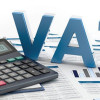

Reverse Charge Mechanism for Electronic Devices
In recent developments within the United Arab Emirates (UAE), the government has introduced Cabinet Decision No. 91, which addresses the value-added tax (VAT) treatment of electronic devices. This decision is vital for businesses involved in the supply and acquisition of electronic devices within the UAE. Let's delve into the key aspects of this decision to gain a better understanding.
Scope of Transactions
Transactions will only fall within the scope of this Decision if the intention of the Recipient of the Electronic Devices was to resell these Electronic Devices or use them in producing or manufacturing Electronic Devices.
Resell: Reselling refers to being part of the recipient's business activities, involving the trading of electronic devices. This resale can occur at either the wholesale or retail level.
Use in Production or Manufacturing: This includes both full and partial production or manufacturing of electronic devices. For instance, if the recipient acquires components considered as electronic devices to assemble them into another electronic device, this would be considered as production or manufacturing.
It is important to note that if the recipient acquires electronic devices for purposes other than production or manufacturing (e.g., distributing smartphones among employees for professional use), this does not constitute an intention to resell.
Scope of Goods
Cabinet Decision No. 91 specifically applies to electronic devices as defined under Article 1 which are mobile phones, smart phones, computer devices, tablets and pieces and parts thereof.
Mobile Phones and Smartphones: This category encompasses a broad range, from basic mobile phones with call and text functions to advanced smartphones with additional features.
Computer Devices: This includes various types of computers, from personal computers to server computers, and even computerized engine control units (ECUs) for cars.
Tablets: Tablets are considered wireless, portable personal computers with touchscreen interfaces, bridging the gap between smartphones and computer devices.
However, e-readers marketed without additional features such as gaming functionalities or web browsing are not included in this definition.
Reverse Charge Mechanism
One of the most significant aspects of Cabinet Decision No. 91 is the introduction of the reverse charge mechanism. In general, taxable persons are required to impose VAT on all taxable supplies. However, an exception is made for supplies of electronic devices falling within the scope of this decision.
Under the reverse charge mechanism:
- ➤ The supplier of electronic devices does not account for VAT on the supplies to the recipient and does not report any due tax in their VAT return.
➤The recipient of the electronic devices is responsible for accounting for the due tax on the transaction and fulfilling all associated tax obligations.
This mechanism applies when certain conditions are met, including both the supplier and recipient being registered for VAT in the UAE, and the supplier retaining a written declaration from the recipient confirming the intention to resell the electronic devices or use them for production or manufacturing.
It's important to note that the supplier must still meet other obligations, including issuing a tax invoice with specific details.
Compliance Requirements
Cabinet Decision No. 91 imposes documentary and compliance requirements on both the supplier and the recipient for the reverse charge mechanism to apply.
Requirements for the Recipient:
The recipient must provide two declarations to the supplier before the date of supply: one indicating the intent of the supply for resale or production and another confirming their registration with the FTA.
Requirements for the Supplier:
The supplier must receive and retain the declarations provided by the recipient.
The supplier must verify and confirm that the recipient is a registrant. The verification process is to be done in accordance with means approved by the FTA.
If the recipient fails to provide the required declarations to the supplier before the supply date, the supplier must account for output tax unless the supply qualifies for zero-rating under specific conditions.
Not meeting the compliance requirements – the Recipient cannot recover the input tax
If the Recipient of the Electronic Devices does not, before the date of supply, provide the supplier with the declaration of intent and the declaration confirming that he is a Registrant, not only must the supplier account for Output Tax on the supply, but the Recipient also cannot recover input tax form such supply.
If the Recipient, did not declare his intent of use of Electronic Devices, as required by Cabinet Decision No. 91, it cannot be considered that the Electronic Devices are used or intended to be used to make taxable supplies. As a result, the Input Tax incurred by him on the supply of the Electronic Devices is not recoverable.
As per Tax Procedures Law, the burden of proof with regards to the entitlement of recovery of Input Tax, falls on the Taxable Person. If the Recipient does not provide a declaration of intent, as clarified above, to the supplier, the Recipient is not meeting the set requirements to prove that he is using or intending to use the Electronic Devices for the purposes of making taxable supplies and hence, he will not be entitled to recover the input VAT incurred.
Effective Date
Cabinet Decision No. 91 becomes effective 60 days after its publication in the Official Gazette, which is October 30, 2023. From this date onwards, all supplies of electronic devices must adhere to the VAT treatment and compliance requirements as outlined in the decision.
In conclusion, Cabinet Decision No. 91 introduces significant changes in the VAT treatment of electronic devices in the UAE. Businesses involved in these transactions must ensure compliance with the reverse charge mechanism and the associated documentation and declarations to avoid potential tax implications. It's crucial to stay informed and adapt to these new regulations to continue operating smoothly within the UAE's VAT framework. For enquiries on regulatory requirements for your business, contact finance@hicuae.com








